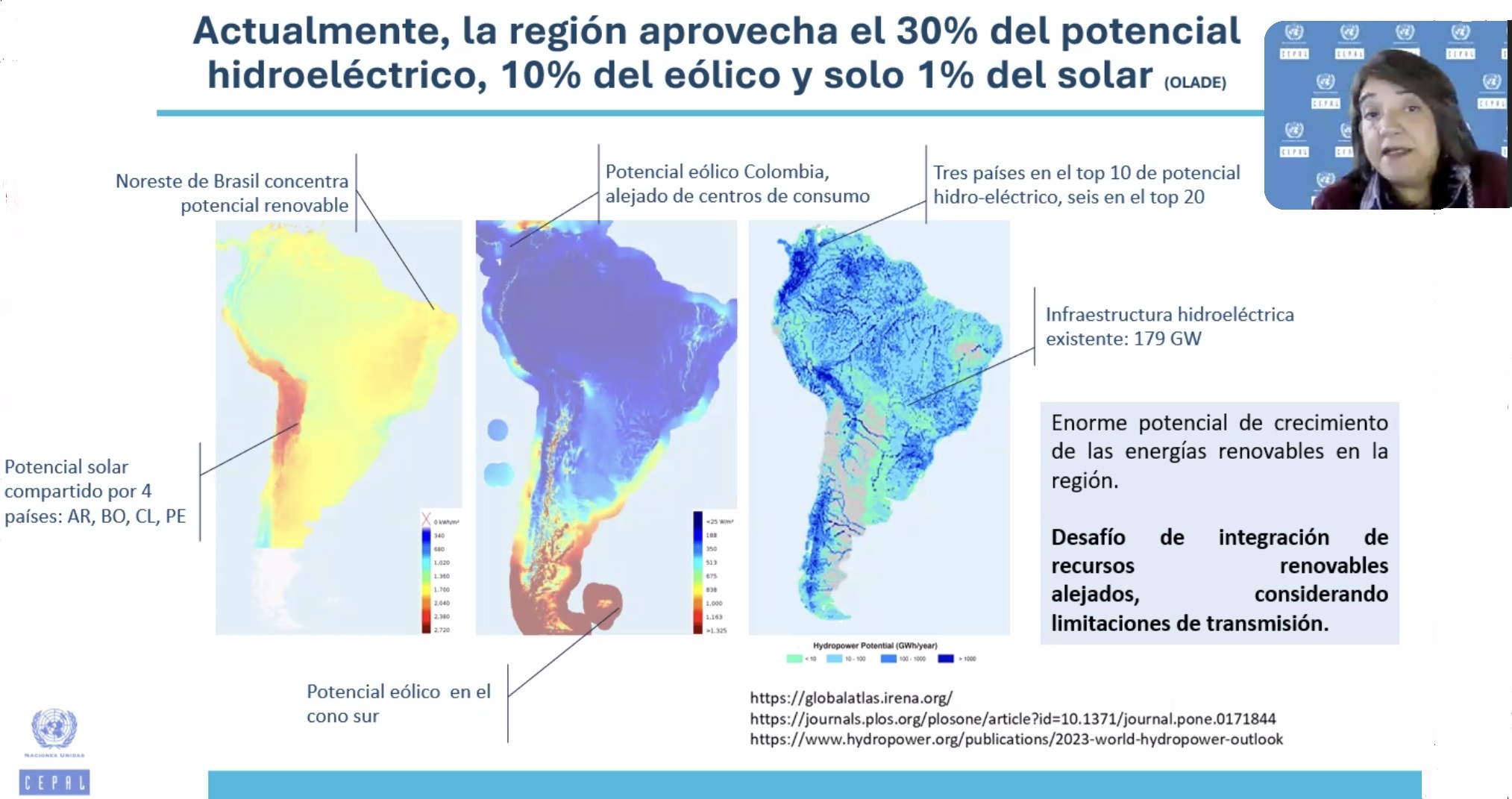ECLAC Participated in the Energy Diplomacy Course Organized by the Ministry of Energy and Mines of the Dominican Republic
Work area(s)
Topic(s)
ECLAC contributed with its proposal on energy transition in Latin America and the Caribbean, with an emphasis on transforming the development model. The course included the participation of diplomats and officials from the energy sector in the Dominican Republic.

On August 8, 2024, sessions 9 and 10 of the Energy Diplomacy course, titled "Multilateral Organizations and International Cooperation" and "Financing Mechanisms: International Banking, Green Funds," took place. This course, now in its second edition, is organized by the Ministry of Energy and Mines and senior authorities of the Dominican Republic, and aims to strengthen international cooperation in energy matters.
Ms. Rayen Quiroga, Head of the Water and Energy Unit of the Natural Resources Division of ECLAC, presented on the regional context, progress, and challenges in the energy transition for Latin America and the Caribbean (LAC). She initially discussed the global context affecting the region, particularly the recent crises: the pandemic and wars. These events caused significant disruptions in global supply chains and energy systems. The effects in the region have been characterized by low growth, high inequality and social mobility, as well as low institutional capacity and ineffective governance.
Regarding the energy situation in the LAC region, despite significant increases in electricity access, there are still 16.1 million people without access, and 83 million people who continue to use wood and charcoal for cooking. Energy inequality is evident as the most vulnerable people (belonging to the lowest income quintile) have on average 9 times less access to electricity compared to the highest income group. Indigenous and Afro-descendant populations are the most vulnerable, representing one-third of the total without access. On the other hand, it was highlighted that the supply of renewable primary energy has increased in recent decades, with solar and wind energy growing faster than fossil fuels, although renewables still only represent 31% of the total supply.
It was mentioned that the region has significant energy opportunities for integration. These include existing electricity and natural gas transmission infrastructure, which allows for interconnection within the region, potentially facilitating the use of green hydrogen. Another relevant opportunity is the availability of surpluses and market complementarity in renewable energy and hydroelectric turbines. The energy opportunities in LAC also translate into benefits such as strengthening energy security, sharing and optimizing resource use, and improving energy planning.
Seizing the transition also implies a triple gain: 1) social, with the universalization of electricity access and poverty reduction; 2) economic, with a transformation of the productive model towards new industries; and 3) environmental, through decarbonization, improving environmental quality and quality of life.
Finally, the discussion turned to investment needs and their impacts. Some data reveal that an investment of 1.82% of annual GDP in South America between 2025 and 2050 could generate up to 87% renewable electricity generation, create 7 million green jobs, and reduce CO2 emissions by 61%. However, the data shows that for the LAC region, Foreign Direct Investment in non-renewable energy projects has outpaced investments in renewable energies.
Attached to this article is the presentation used by Ms. Rayen Quiroga, available for download.
The session also featured participation from Mr. Charly de la Rosa, Head of the USAID Caribbean Energy Sector Reform Project, who discussed some conceptualizations of what an energy transition means, as well as important progress in the Dominican Republic. Mr. Aníbal Mejía, former Director of Conventional Energy of the Ministry of Energy and Mines of the Dominican Republic, also participated and commented on financing mechanisms and green funds.
Country(ies)
- Dominican Republic